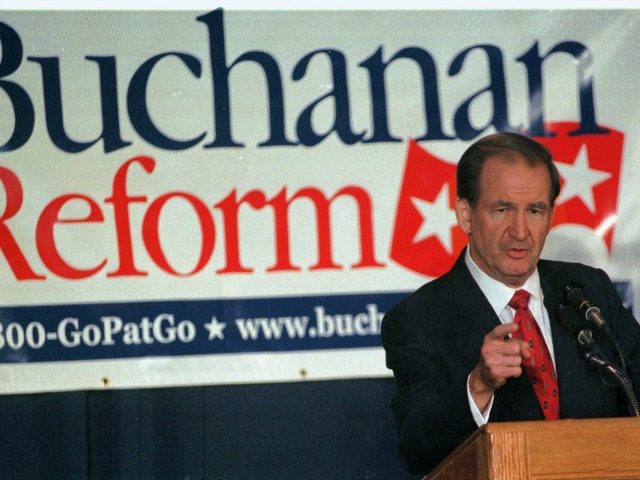Stuart Stevens, in an attack on presumptive Republican nominee Donald Trump’s willingness to utilize tariffs, tweeted Wednesday night that Hillary Clinton “is more conservative on trade & foreign policy.”
Stevens, the lead strategist for failed 2012 presidential candidate Mitt Romney, is still feeling the sting of a raucous primary that shoved his neoconservative political philosophy out the door.
With Trump’s nomination a lock, a faction of the GOP – largely consisting of neocon squatters who believe in open borders, non-reciprocal free trade, and unnecessary wars unrestrained by U.S. national interest – have been wrestling with their new impotence. From Bill Kristol trying to woo obscure third party candidates, to Hugh Hewitt suggesting the Republican National Committee re-write the rules to dump Trump in Cleveland, this failed wing of the party is in a tailspin.
Why are the neocon #NeverTrumpers so irrational? Why are they unable to face reality? And why do they continue to parrot fanciful notions that Trump’s positions, especially on trade and foreign policy, are not conservative?
To understand the continual tantrums of the #NeverTrump movement, one need only to look back to 1999.
It was at this time when the real-estate bubble was just starting to inflate and the United States was believed to be unmatched by any other superpower. It was at this time Patrick Buchanan – the last Mohican of the America First movement – was viewed by the neoconservative movement as a political dinosaur.
So Buchanan bolted the party in October 1999, after working for three Republican presidents and calling the GOP home for decades. Buchanan, much like the #NeverTrump movement of today, believed that the party he first joined no longer existed.
But in the months before Buchanan defected to the Reform Party, George W. Bush and Jim Nicholson, the party’s then frontrunner and chairmen respectively, encouraged Buchanan to stay put. Just because Buchanan lost did not mean he should turn on the family, they said.
Nicholson met with Buchanan, and warned him to be “very careful before taking any action that could in any way help Al Gore or Bill Bradley extend the Clinton-Gore era.” Nicholson reminded Buchanan “that the next president would almost certainly make several lifetime appointments to the Supreme Court.” Sound familiar?
But why should Buchanan stay? This was not a situation in which he lost and an olive branch was being presented.
Buchanan was a member of a party in which its ruling class indicted him as protectionist, isolationist and xenophobe. The fact that his policies mirrored those of the four men on Mount Rushmore meant nothing. Even before Buchanan departed, his primary rival, U.S. Sen John McCain, condemned Buchanan’s non-interventionism and proclaimed that “there’s no place in the Republican Party” for Buchanan and his positions.
Buchanan decided to formally leave the GOP because he felt the party that was telling him to genuflect to neoconservatism or get to the back of bus. If he chose either option he would have betrayed the issues he had championed for decades and, more importantly, he would have betrayed himself.
Buchanan’s decision was considered heresy by an unforgiving establishment that believed one’s principles take a backseat to the party loyalty. The break-up was ugly.
Bush then argued that Buchanan left “because Republicans rejected his views during his three failed attempts to earn the Republican Party’s presidential nomination.” Dubbya also alleged Buchanan’s departure was not principled, but personal, because Buchanan held a vendetta against the Bush clan (Buchanan had challenged George H. W. Bush in 1992 for the GOP nomination).
Bush’s message was clear – whether it be love, war, or politics, to the victor goes the spoils. In the Autumn of 1999 it was clear the neoconservative wing of the GOP was the victor and Buchanan’s day had come and he was gone. Buchanan had a duty to admit defeat and tow the line.
But that was then and this is now.
With the U.S. economy stagnant, foreign intervention draining the coffers, neoconservatism has not won since Dubbya in 2004. McCain went down in flames in 2008, Mitt Romney followed suit in 2012, and now in 2016 the defeated neocons of today are the Buchanans of 1999. Like a prodigal son, Buchanan’s America First is back . Neoconservatism is in retreat with one question being asked of its generals – what do we do now?
Do they follow the advice they gave to Buchanan in 1999 – suck it up and stay silent to help the party? Or do they run crying towards Clinton’s awaiting bosom out of spite, because — borrowing the words of Dubbya — “Republicans rejected [their] views”?
No matter their choice, neoconservatives are stuck in a Catch-22 in which they either become hypocritical, irrelevant, or both. Just as McCain – the neocon in chief – proclaimed there was not place in the GOP for Buchanan in 1999, the Republican primary voters have proclaimed there is no place in today’s GOP for the neocons. You know what they say about Karma.
Joseph R. Murray, II, is a conservative commentator, former campaign official for Pat Buchanan, and author of “Odd Man Out”. He can be reached at jrm@joemurrayenterprises.com.

COMMENTS
Please let us know if you're having issues with commenting.